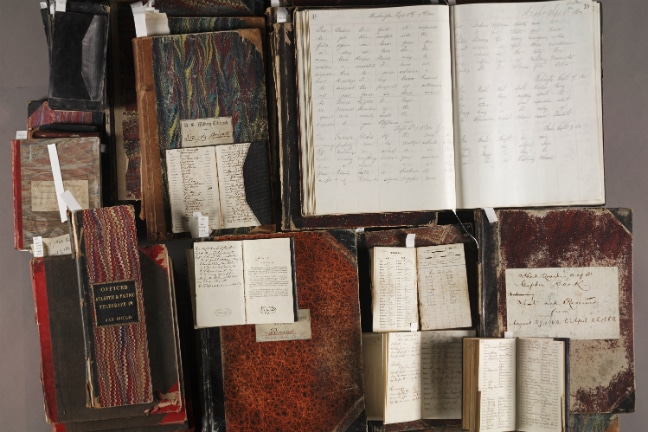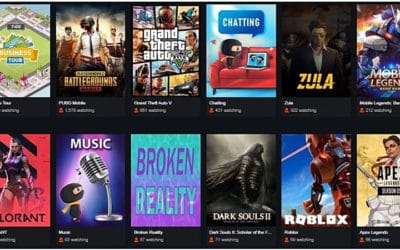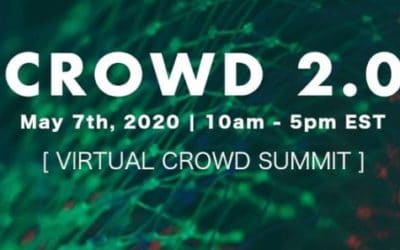Check out our curated Weekly Roundup of the breaking news and must-read thought leadership pieces on the crowd economy spotted by the Crowdsourcing Week team
Crowdsourcing project to decode U.S Civil War telegrams
The University of Minnesota in collaboration with The Huntington Library, Art Collections and Botanical Gardens hopes to gain new insights into the U.S. Civil War with an innovative crowdsourcing project. More here
The project involves help from the general public to transcribe and decipher a collection of nearly 16,000 Civil War telegrams between Abraham Lincoln, his Cabinet, and officers of the Union Army. Roughly one-third of the messages were written in code. “The Decoding the Civil War project is an exciting example of a historical research project enabled by the crowdsourcing capabilities of the Zooniverse platform and the Zooniverse team at the University of Minnesota,” said University of Minnesota Associate Professor Lucy Fortson, co-founder of Zooniverse and Associate Head in the University’s School of Physics and Astronomy. “The decoding portion of this project is a particularly intriguing aspect for us to work on as it represents a new type of challenge for Zooniverse.”
Crowdsourcing approach to help raise revenue for University
UC Berkley, is holding a contest for the public launch of Ideaction, a crowdsourcing website for pitching ideas on how to raise revenue for the university
The contest is designed to lure people into Ideaction, where anyone in the campus community or the general public can sign up and submit revenue-generating concepts, says William Rohrer, a Berkeley alum and community engagement specialist with the Ideaction team. “The Berkeley community is very broad and loyal to campus, and we want their help to solve this big problem,” Rohrer says. “They’re engineers, doctors, community organizers, artists… They know their community better than we do, and we’re looking for their ideas and feedback.”
Crowdsourcing platform makes public gene expression data more accessible
Scientists have developed a free online platform that uses a crowdsourcing approach to make public gene expression data more accessible to biomedical researchers without computational expertise. More information on ScienceDaily
Public databases contain millions of gene expression profiles–data that describe the degree to which genes are turned on or off under certain conditions. Potentially, scientists could reuse these data to generate and address new research questions. For example, researchers could re-purpose a dataset comparing blood samples from drug-treated and untreated people to investigate the effects of gender on treatment. However, this wealth of information remains largely untapped for such data reuse, partially because many biologists lack the computer programming expertise needed for data retrieval, processing and analysis. In addition, public database entries typically contain raw study data, which need to be structured for analysis. OMiCC aims to use crowdsourcing techniques to harness the expertise of the research community to overcome these challenges.
Crowdsourcing – the solution to Apple, Google for Automakers
According to Randy Meech, crowdsourcing could be the answer to Google for Automakers. Take a look at what he thinks
Automakers should combat this future by opening up their data. To many, that’s a frightening concept. But if car companies open up the individual mapping data they all have been collecting and open up the traffic data that is being reported from connected cars, together they can amass a set to rival Apple and Google and continue to grow that set as each company’s respective data set grows. From this shared data, automakers will be able to create software on their own terms, without relying on a single outside company. In addition to creating a viable alternative to Apple and Google, opening data will create a better product for consumers.
“KELT Follow-Up Network” helps confirm discovery of ‘Tatooine’ planet
Largest crowdsourcing astronomy network confirms the discovery of ‘Tatooine’ planet. More details here
The new planet was discovered by a team at NASA’s Goddard Space Flight Center and San Diego State University used the Kepler Space Telescope. The discovery was announced in San Diego, at a meeting of the American Astronomical Society. The research has been accepted for publication in the Astrophysical Journal with Veselin Kostov, a NASA Goddard postdoctoral fellow, as lead author. To help verify what they had seen, the researchers made use of the worldwide network of professional and amateur astronomers that Pepper – a coauthor on the paper – had created. “It’s really exciting for me to be part of this discovery, since I’ve been working on this problem for a long time, said Professor Jensen. “As a graduate student in the early 1990s, I studied dusty disks around young binary stars. We thought that such disks should form planets, but that was before any planets had been discovered outside the solar system, so it was just speculation at that point. I never thought that one day I would help discover a circumbinary planet.”
Stress relieving app turns to crowdfunding
Breathe Sync, an app which aims to optimise breathing in order to reduce stress is seeking £100,000 on equity crowdfunding platform Crowdcube.
Townsend Williams said: “The world is more stressed out than ever. This causes problems like heart disease, depression, anxiety and sleep disorders. Breathing can make these better. In fact, both the FDA in the US and the NHS in the UK recommend it.” The company said that its product brings together the data of fitness like the Fitbit, Strava and Nike + with the experience of mindfulness such as Headspace, Calm and Spire. Breathe Sync is offering investors 6.25 per cent equity in the business. Townsend Williams added: “We aim to raise an enterprise investment scheme round of £500,000 in year two with a view to break-even in year three. With significant growth around the world, investors can envisage an exit in four to five years through acquisition or strategic investment from anticipated suitors in the following sectors: health insurance, fitness, wellness and technology.”
Image: twin-cities
There are many fantastic stories out there. What else caught your eye this week? Did you come across some breaking news or a good thought piece? Do share them with us…





0 Comments